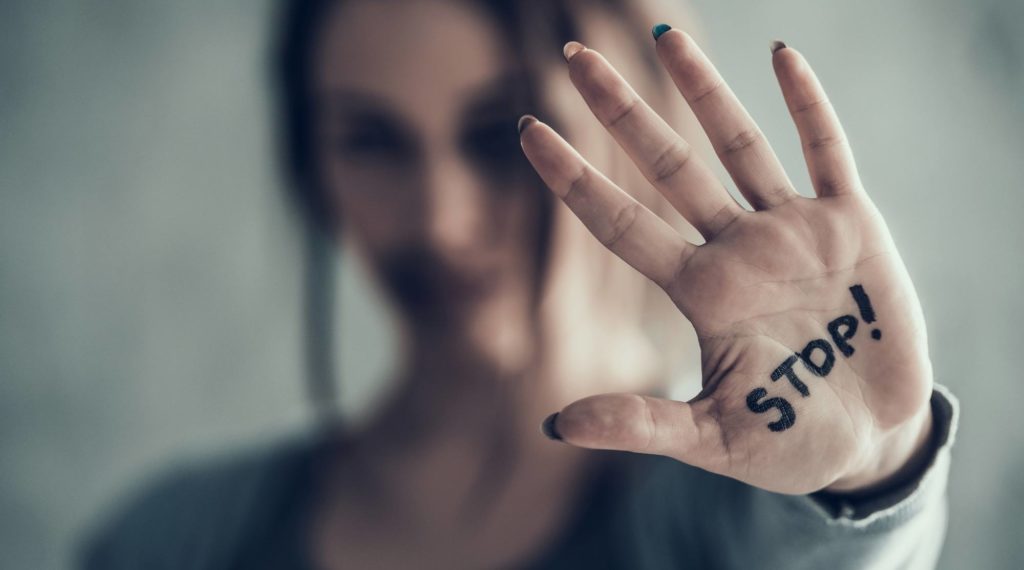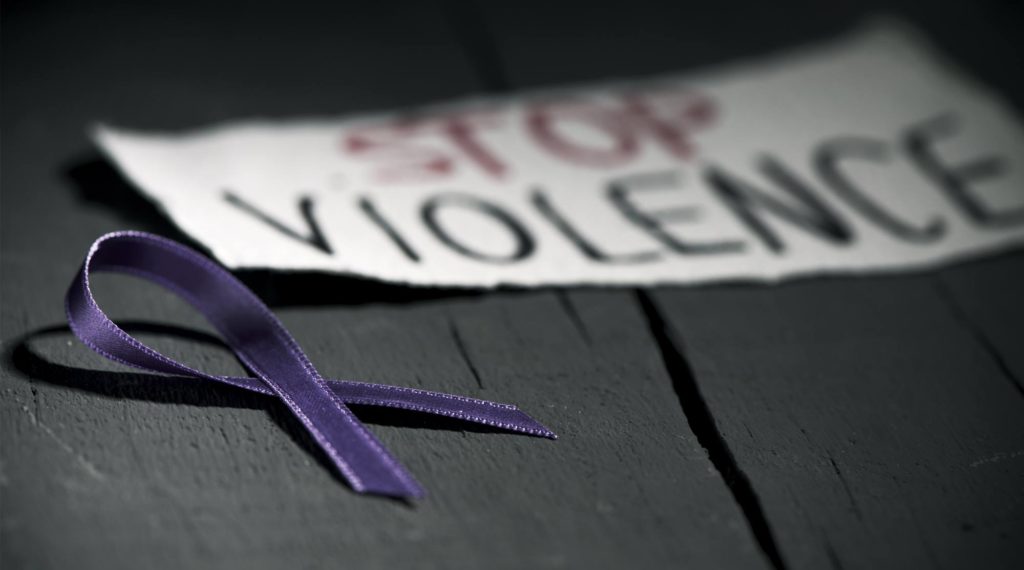25 COVID-19 Domestic Violence Resources
The coronavirus pandemic and global lockdown has been a time of great uncertainty and fear for everyone. As COVID-19 continues to sweep the nation and the death toll rises, cities and states across the country are encouraging residents to “Stay Safe, Stay Home” or remain “Healthy at Home,” implementing strict stay-at-home and shelter-in-place orders to limit the spread of the novel coronavirus.
What many people don’t realize is that there are many individuals and families for whom home is not a safe place to be during the coronavirus quarantine. In Illinois, Governor JB Pritzker’s “stay-at-home” order has been extended until at least May 30, and while restrictions on movement may serve to reduce the spread of the virus, victims of domestic violence are suddenly finding themselves trapped at home with their abusers in the midst of a global pandemic, with limited opportunities for seeking help or support.
Table of Contents
- Domestic Violence During COVID-19
- Coronavirus Isolation Compounds Violence
- Types of Domestic Violence
- Governments Urged to Put Women’s Safety First
- Domestic Violence Resources During COVID-19
- National Health Organizations and Information About COVID-19
- National Domestic Violence Organizations
- Other National Organizations
- State-Specific COVID-19 Domestic Violence Resources
- Child Abuse Resources
- Children/Youth COVID-19 Domestic Violence Resources
- Culturally Specific
- Deaf Community
- Disabilities
- Emergency Preparedness
- Employers
- Employees
- Funding/Budgets/Finance/Taxes
- Housing/Homeless
- Human Trafficking
- LGBTQ+ Community
- Legal
- Legislation and Legislative Resources
- Medical Issues, IPV and COVID-19
- Mental Health
- Mobile Advocacy/Digital Services
- Older Adults
- Safety Planning and Perpetrator Pattern Mapping
- Sexual Assault
- Substance Abuse
- Teens/Youth
- Undocumented/Immigrant Communities
Domestic Violence During COVID-19
Not only do victims of domestic violence have reduced access to medical care and support services as a result of the quarantine, many are facing additional challenges like reduced income and/or job loss. Without reliable income, many domestic violence victims will have a difficult time saving up enough money to leave their abusers.
And with the imminent risk of COVID-19, they may also feel as though they cannot turn to friends or family members for help, for fear of exposing them to the virus. Times are challenging for everyone right now, but for domestic violence victims confined to their homes with abusive partners, the quarantine could make them more vulnerable to brutal attacks and prevent them from getting the help they need.
Coronavirus Isolation Compounds Violence

According to experts, victims of domestic violence usually call for help when their abusers are at work or away from the house. During the quarantine, victims may not have the opportunity make that crucial phone call. Rebecca Darr, CEO of WINGS, the largest domestic violence service provider in Illinois, calls the coronavirus quarantine a “perfect storm” for abuse, noting that many victims are sheltered at home with increased anxiety over health and finances causing tensions to rise. Since the beginning of the quarantine, states across the country have reported a spike in domestic violence calls, which some say was a predictable side effect of COVID-19 isolation, considering the fact that isolation tends to compound violence. Even in areas where reports of domestic violence have dropped, law enforcement officials say that may signal a problem. With fewer private moments to make calls during quarantine, people experiencing abuse may find it more difficult to reach out for help at a time when they need it the most.
Types of Domestic Violence
Most people think of domestic violence as physical abuse perpetrated by one partner against another, but not all abusive relationships involve physical acts of violence. Domestic violence can also come in the form of psychological, emotional, sexual or economic abuse.
Common tools of intimate partner abuse wielded by abusive and controlling partners include constant surveillance, strict rules for behavior, isolation from friends and loved ones, and restrictions on access to basic necessities like food, clothing and money. The following are some common types of domestic violence that may arise during COVID-19:
- The abuser gives his partner an allowance, refuses to give her access to family income and/or makes her ask for money
- The abuser limits his partner’s social contact, using COVID-19 as an opportunity to control who she sees and talks to
- The abuser minimizes the abuse or blames his partner for the abusive behavior
- The abuser puts his partner down, calls her names and/or makes her feel bad about herself
- The abuser uses intimidation to make his partner feel afraid (i.e. threatening looks, gestures or actions, displaying weapons, destroying her property)
- The abuser makes all the important household decisions and treats his partner like a servant
- The abuser threatens to hurt his partner, leave her or commit suicide
- The abuser forces his partner to leave the house so she gets sick
Governments Urged to Put Women’s Safety First

People who are experiencing domestic violence in their relationships and families may be dealing with increased isolation and elevated danger due to social distancing measures put in place during the coronavirus pandemic. Social distancing can easily turn into social isolation and being isolated from friends, family, neighbors and colleagues can make victims of domestic violence more vulnerable to violence or abuse.
In fact, evidence suggests that domestic abuse occurring in homes around the world is flourishing in the conditions created by the global pandemic, and governments and domestic abuse organizations are now struggling to address this growing public health crisis.
“We know that the statewide hotline is getting a lot of calls and they are trying to pass them through us, but we can only have so many people in the houses for health reasons to keep staff and clients safe,” said Darr. In April, Secretary-General of the United Nations António Guterres wrote on Twitter, “I urge all governments to put women’s safety first as they respond to the pandemic.”
In Illinois, that means increasing the capacity of domestic violence services during COVID-19. In early April, the Illinois Department of Human Services announced that it would launch a $1.2 million initiative to expand its statewide network of support services for domestic abuse and sexual assault survivors during the COVID-19 pandemic.
“During times of crisis, there may be an increase in domestic and sexual violence, while barriers to services are compounded,” said Illinois Department of Human Services (IDHS) Secretary Grace B. Hou in announcing the plan. “The health and safety of survivors during COVID-19 is of the utmost importance to IDHS and Gov. Pritzker, and today’s actions will ensure that access to these critical services continues.”
Governor JB Pritzker voiced his support of the initiative, saying, “While most Illinoisans are adhering to the Stay at Home order, not everyone has a safe home to go to. If you are experiencing domestic violence or live in fear of it, I know how much scarier or complicated the message of ‘Stay Home’ might sound. If that’s the case for you, please know that you can call our Illinois Domestic Violence Hotline at 1-877-863-6338 for help.”
Domestic Violence Resources During COVID-19

Domestic violence is a pattern of behaviors used to gain or maintain power or control over another person in an intimate partnership and home isolation measures, however essential in the ongoing fight to end the COVID-19 pandemic, are giving abusers more power against their victims. The forced isolation and associated economic crisis have also devastated support networks and caused widespread financial insecurity, making it all the more difficult for domestic violence victims to get the help they need or escape their abusers. Eventually, the coronavirus quarantine will end. But as the confinement drags on, the risk of more frequent and increasingly violent domestic violence cases continues to grow nationwide. At a time when domestic abuse victims are at their most vulnerable, it is imperative that state and local governments ramp up efforts to expand access to vital domestic violence services. The following are some important COVID-19 resources for domestic violence survivors and communities.
National Health Organizations and Information About COVID-19
- U.S. Centers for Disease Control and Prevention (CDC): https://www.cdc.gov/coronavirus/2019-ncov/index.html
- World Health Organization (WHO): https://www.who.int/emergencies/diseases/novel-coronavirus-2019
- McGraw Hill Medical: https://www.accessmedicinenetwork.com/channels/2610
National Domestic Violence Organizations
- The National Domestic Violence Hotline: https://www.thehotline.org/
Call 1-800-799-SAFE (Available 24 hours a day) - Staying Safe During COVID-19 from the National Domestic Violence Hotline: https://www.thehotline.org/2020/03/13/staying-safe-during-covid-19/
- National Coalition Against Domestic Violence (NCADV): https://ncadv.org
- The National Network to End Domestic Violence: https://nnedv.org/latest_update/resources-response-coronavirus-covid-19/
- Futures Without Violence: https://www.futureswithoutviolence.org/get-updates-information-covid-19/
- National Resource Center on Domestic Violence: https://vawnet.org/news/preventing-managing-spread-covid-19-within-domestic-violenceprograms
Other National Organizations
National Partnership for Women and Families:
https://www.nationalpartnership.org/our-work/resources/economic-justice/know-your-rights-emergency-paid-sick-days-and-paid-leave.pdf
- When Work is Safer than Home (Workplaces Respond to Domestic and Sexual Violence): https://www.workplacesrespond.org/page/covid19supportingworkers/
- National Organization for Victim Assistance (COVID-19 Discussion Forums): https://discuss.trynova.org/
- The National Clinical Training Center for Family Planning: https://www.ctcfp.org/covid-19-update/
State-Specific COVID-19 Domestic Violence Resources
- Domestic Violence Victim Services (IDHS): https://www.dhs.state.il.us/
- Illinois Domestic Violence Hotline: 1-877-TO END DV or 1-877-863-6338
- State Domestic Violence Coalitions: www.ncadv.org/state-coalitions
- State & Territorial Health Department Websites: https://www.cdc.gov/publichealthgateway/healthdirectories/healthdepartments.html
- State Public Policy Resources on COVID-19: https://www.councilofnonprofits.org/trends-policy-issues/state-public-policy-resources-covid-19
Child Abuse Resources
- Prevent Child Abuse America: https://preventchildabuse.org/coronavirus-resources/
- End Violence Against Children: https://www.end-violence.org/protecting-children-during-covid-19-outbreak
- The Alliance for Child Protection in Humanitarian Action: https://www.end-violence.org/sites/default/files/paragraphs/download/The%20Alliance%20COVID%2019%20Brief%20Version%201%20%28006%29.pdf
Children/Youth COVID-19 Domestic Violence Resources
- American Academy of Pediatrics: https://services.aap.org/en/pages/2019-novel-coronavirus-covid-19-infections/
- CLASP: https://www.clasp.org/publications/fact-sheet/ensuring-young-children-have-healthy-meals-during-coronavirus-pandemic
- Supporting Children and Youth Experiencing Homelessness during the COVID-19 Outbreak: Questions to Consider: https://www.usich.gov/tools-for-action/supporting-children-and-youth-experiencing-homelessness-during-the-covid-19-outbreak-questions-to-consider
- The National Child Traumatic Stress Network: https://www.nctsn.org/resources/parent-caregiver-guide-to-helping-families-cope-with-the-coronavirus-disease-2019
- Strengthening Connections: Mentoring Youth During a Pandemic (OJJDP): https://www.ojp.gov/news/ojp-blogs/2020-ojp-blogs/strengthening-connections?utm_campaign=mentoring&utm_medium=email&utm_source=govdelivery
- Administration for Children and Families, Children’s Bureau: https://www.acf.hhs.gov/cb/resource/covid-19-resources
- Runaway and Homeless Youth Training and Technical Assistance Center: https://www.rhyttac.net/
- COVID-19 in Pediatrics: https://www.accessmedicinenetwork.com/channels/2610-accessmedicine-covid-19-central/posts/64750-covid-19-in-pediatrics
Culturally Specific
- Asian Pacific Institute on Gender Based Violence, COVID-19 Language Resources: https://docs.google.com/spreadsheets/d/1XePaKv7Ar59PG7z37QqzIb8WfynEx5BK5ZfK3VLXIJA/edit#gid=1631784996
- Racial Equity Tools: https://www.racialequitytools.org/fundamentals/resource-lists/resources-addressing-covid-19-with-racial-equity-lens
- Black Women’s Health Imperative: https://coronavirus.bwhi.org/
- Mi Familia Vota: https://www.mifamiliavota.org/news/mfv-responds-to-challenge-of-civic-engagement-in-face-of-coronavirus/
- NAKASEC: https://nakasec.org/10287
Deaf Community
- DeafDawn: https://deafdawn.org/
- National Association of the Deaf: https://www.nad.org/2020/03/12/coronavirus/
Disabilities
- The Initiative: https://theinitiativecolorado.org/
- The ARC: https://thearc.org/covid/
- U.S. Equal Employment Opportunity Commission: https://www.eeoc.gov/eeoc/newsroom/wysk/wysk_ada_rehabilitaion_act_coronavirus.cfm
Emergency Preparedness
- VAWnet.org: https://vawnet.org/sc/impact
- Emergency Preparedness Toolkit: A Guide for Domestic Violence Organizations: https://www.cpedv.org/resource-tool/emergency-preparedness-toolkit
Employers
- US Department of Labor: https://www.dol.gov/newsroom/releases/osha/osha20200309
- U.S. Equal Employment Opportunity Commission: https://www.eeoc.gov/eeoc/newsroom/release/eeoc-continues-to-serve.cfm
- Workplaces Respond: https://www.workplacesrespond.org/page/coronavirus/
- US Chamber of Commerce: https://www.uschamber.com/sites/default/files/guidance_for_employers_to_plan_and_respond_to_the_coronavirus_031620.pdf
- National Council of Nonprofits: https://www.councilofnonprofits.org/nonprofits-and-coronavirus-covid-19
Employees
- National Partnership for Women and Families: https://www.nationalpartnership.org/
- National Council for Occupational Safety and Health: https://nationalcosh.org/coronavirus
- PLUS, Coronavirus and Paid Leave: https://paidleave.us/coronavirus-paid-leave?utm_campaign=COVID19&utm_medium=lightbox&utm_source=PLUS
Funding/Budgets/Finance/Taxes
- A Guide to Economic Impact Payments for Advocates (Get It Back): https://www.eitcoutreach.org/tax-filing/coronavirus/a-guide-to-economic-impact-payments-for-advocates/
- Center for Survivor Agency & Justice. Survivors & Taxes: Frequently Asked Questions (FAQ): https://assets.speakcdn.com/assets/2497/consumer_rights_newsletter__survivors_&_taxes_during_covid.pdf?1587597678679
- Center on Budget and Policy Priorities: https://www.cbpp.org/
- ACF grant flexibilities in conducting human service activities related to or affected by COVID-19: https://www.acf.hhs.gov/sites/default/files/assets/im_acf_oa_2020_01_acf_covid_flexibilities_final_march_30_2020.pdf
- Bureau of Justice Assistance FY 2020 Coronavirus Emergency Supplemental Funding Program (Deadline: May 29): https://bja.ojp.gov/funding/opportunities/bja-2020-18553?utm_campaign=solicitations_2020&utm_content=funding_3.31.2020&utm_medium=email&utm_source=newsfrombja
- Loans Available for Nonprofits in the CARES Act (Public Law 116-136): https://www.councilofnonprofits.org/trends-policy-issues/loans-available-nonprofits-the-cares-act-public-law-116-132
- Frequently Asked Questions on Allowable Use of Family Violence Prevention and Services Act (FVPSA) Funds for Domestic Violence Shelter and Supportive Services: https://andvsa.org/wp-content/uploads/2020/03/FVPSAFAQ_Use-of-Funds-Questions-Shelter-SupportiveServices-03-30-20.pdf
- Office of Justice Programs: https://www.ojp.gov/funding/grantee-update-2-guidance-short-term-administrative-reliefgrantees-impacted-covid-19
- US Chamber of Commerce: https://www.uschamber.com/report/covid-19-emergency-loans-small-business-guide
- Resources for Economic Empowerment Programs: Responding to COVID-19 (Futures Without Violence): https://www.futureswithoutviolence.org/human-trafficking/covid-19-economic-resources
- The CARES Act Provides Assistance to Small Businesses (US Treasury): https://home.treasury.gov/policy-issues/cares/assistance-for-small-businesses
Housing/Homeless
- National Low Income Housing Coalition: https://nlihc.org/coronavirus-and-housing-homelessness
- National Alliance to End Homelessness: https://endhomelessness.org/coronavirus-and-homelessness/
- National Alliance for Safe Housing: https://www.nationalallianceforsafehousing.org/covid-19-resources/
- Infectious Disease Preparedness Among Homeless Assistance Providers: https://www.hudexchange.info/news/infectious-disease-preparedness-among-homelessassistance-providers/
- Infectious Disease Toolkit for Continuums of Care: https://files.hudexchange.info/resources/documents/Infectious-Disease-Toolkit-for-CoCsPreventing-and-Managing-the-Spread-of-Infectious-Disease-within-Shelters.pdf?utm_source=HUD+Exchange+Mailing+List&utm_campaign=453c25fdc2-Health+Prepare+CoC+3.2.20&utm_medium=email&utm_term=0_f32b935a5f-453c25fdc2-19224069
Human Trafficking
- The Polaris Project: https://polarisproject.org/blog/2020/03/the-effect-of-covid-19-on-human-trafficking/
LGBTQ+ Community
- National Center for Transgender Equality: https://transequality.org/covid19
- National Coalition for LGBT Health: https://healthlgbt.org/awareness-week/the-impact-of-covid-19-on-the-lgbtq-community/
Legal
- ABA: https://www.americanbar.org/groups/departments_offices/abacle/trending-cle/
- (Tahirih Justice Center) Adapting Trauma-Informed Lawyering Best Practices During the COVID-19 Pandemic: https://publichealth.lacounty.gov/dvcouncil/dailyEmail/2020/032720/ProBonoGuidanceCOVID-19_V3.pdf
- Center for Court Innovation: https://www.courtinnovation.org/covid19-updates
- National Council of Juvenile and Family Court Judges: https://www.ncjfcj.org/covid-19-resources-and-updates/
- National Center for State Courts: https://www.ncsc.org/Newsroom/Public-health-emergency.aspx
- Womenslaw.org: https://www.womenslaw.org/laws/preparing-court-yourself/frequently-asked-questions-involving-courts-and-covid-19
Legislation and Legislative Resources
- FVPSA: https://www.acf.hhs.gov/fysb/programs/family-violence-prevention-services
- Families First Coronavirus Response Act: https://www.dol.gov/agencies/whd/pandemic/ffcra-questions
- CARES Act summary: https://www.appropriations.senate.gov/imo/media/doc/032520%20Title-By-Title%20Summary%20FINAL.pdf
- Take Responsibility for Workers and Families Act, including summary: https://www.congress.gov/bill/116th-congress/house-bill/6201
- Results: https://results.org/blog/latest-from-capitol-hill-on-coronavirus-and-poverty/
- Congressional Research Service. Domestic Violence in the Context of COVID-19: https://assets.speakcdn.com/assets/2497/domestic_violence_in_the_context_of_covid-19.pdf?1587598331589
Medical Issues, IPV and COVID-19
- Positive Women’s Network: Addressing a Crisis Within a Crisis: Intimate Partner Violence, HIV, and COVID-19: https://www.pwn-usa.org/resources/ipv-hiv-covid19/
Mental Health
- National Center on Domestic Violence, Trauma and Mental Health: https://www.nad.org/2020/03/12/coronavirus/
- National Alliance on Mental Illness: https://www.nami.org/getattachment/About-NAMI/NAMI-News/2020/NAMI-Updates-on-the-Coronavirus/COVID-19-Updated-Guide-1.pdf
Mobile Advocacy/Digital Services
- Using Technology to Communicate with Survivors During a Public Health Crisis: https://www.techsafety.org/digital-services-during-public-health-crises
- Best Practices When Using Mobile Devices for Advocacy: https://www.techsafety.org/resources-agencyuse/mobilecomputing-bestpractices
- Digital Services Toolkit by NNEDV: https://www.techsafety.org/digital-services-toolkit
Older Adults
- National Clearinghouse on Abuse in Later Life: https://www.ncall.us/2020/03/17/covid-19/
- National Adult Protective Services Association: https://www.napsa-now.org/
- USC Center on Elder Mistreatment: https://eldermistreatment.usc.edu/staying-connected-during-covid-19/?fbclid=IwAR0MxJb7jRuCTIzIhz50Z-2u0GKWXEOuABzONBUktzR8NnHJIbCxpuLqmWQ
Safety Planning and Perpetrator Pattern Mapping
- Safe and Together Institute: https://safeandtogetherinstitute.com/evidence-resources/covid-19-case-planning/
- The National Domestic Violence Hotline: https://www.thehotline.org/
Sexual Assault
- National Sexual Violence Resource Center: https://www.nsvrc.org/blogs/resources-for-covid-19-response
Substance Abuse
- National Center on Domestic Violence, Trauma and Mental Health: https://www.nad.org/2020/03/12/coronavirus/
Teens/Youth
- Love is Respect: https://www.loveisrespect.org/
- Break the Cycle (while this info is specific to DC and LA, it may still be helpful to others): https://www.breakthecycle.org/blog
- National Runaway Safeline: https://www.1800runaway.org/2020/03/whos-on-your-bus-2/
Undocumented/Immigrant Communities
- Tahirih Justice Center: https://www.tahirih.org/news/tahirihs-response-to-covid-19/
- Alliance for Immigrant Survivors: https://www.immigrantsurvivors.org/ais-covid-2019-statement
- Immigrant Workers’ Eligibility for Unemployment Insurance (National Employment Law Project): https://www.nelp.org/publication/immigrant-workers-eligibility-unemployment-insurance/
- Refugee Council USA (https://rcusa.org/): Challenges Refugees Face in Accessing COVID Relief Provisions: https://bit.ly/COVID19RefugeeChallenges
- National Immigration Law Center: https://www.nilc.org/


